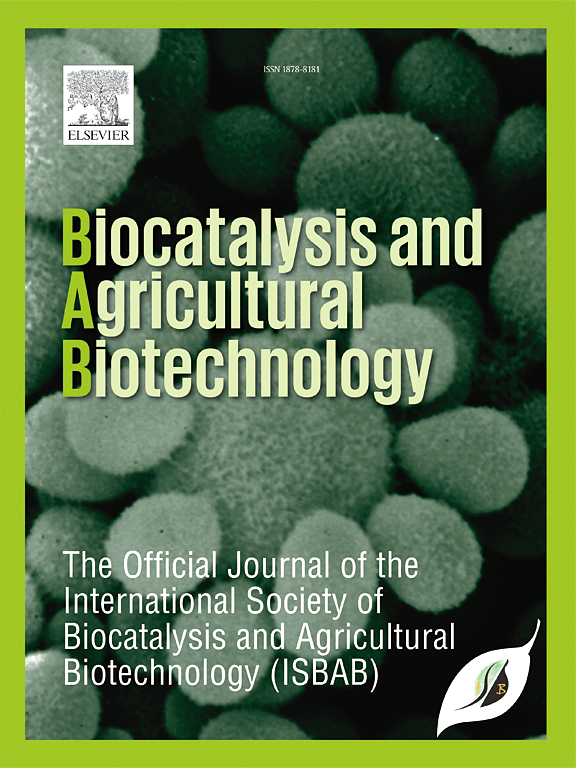Temporal exergy analysis in fed-batch enzymatic hydrolysis: Assessing irreversibilities and sustainability in lignocellulosic biomass conversion
IF 3.4
Q2 BIOTECHNOLOGY & APPLIED MICROBIOLOGY
引用次数: 0
Abstract
Although not yet widely industrialized, biofuels from lignocellulosic biomass show promise in enhancing industrial sustainability, with potential for a reduced carbon footprint and alignment with renewable energy goals. In this context, enzymatic hydrolysis assumes a fundamental position, being essential to make these biofuels viable. This study investigates the performance and thermodynamic sustainability of enzymatic hydrolysis in a fed-batch bioreactor, employing exergy analysis. The total exergy potential available to the system was 1239.93 kJ, with 30% of this exergy being destroyed at the end of the operation. The system achieved an overall exergy efficiency of 70.04%, while the rational efficiency reached 37.33% at the end of the process. Furthermore, the process sustainability indicator (PSI) reached a value of 1.67 and the system achieved a value for thermodynamic sustainability of 3.34. This study provides insights into the optimization of enzymatic hydrolysis processes, focusing on the reduction of irreversibilities, the improvement of exergy efficiency, and the enhancement of sustainability.
求助全文
约1分钟内获得全文
求助全文
来源期刊

Biocatalysis and agricultural biotechnology
Agricultural and Biological Sciences-Agronomy and Crop Science
CiteScore
7.70
自引率
2.50%
发文量
308
审稿时长
48 days
期刊介绍:
Biocatalysis and Agricultural Biotechnology is the official journal of the International Society of Biocatalysis and Agricultural Biotechnology (ISBAB). The journal publishes high quality articles especially in the science and technology of biocatalysis, bioprocesses, agricultural biotechnology, biomedical biotechnology, and, if appropriate, from other related areas of biotechnology. The journal will publish peer-reviewed basic and applied research papers, authoritative reviews, and feature articles. The scope of the journal encompasses the research, industrial, and commercial aspects of biotechnology, including the areas of: biocatalysis; bioprocesses; food and agriculture; genetic engineering; molecular biology; healthcare and pharmaceuticals; biofuels; genomics; nanotechnology; environment and biodiversity; and bioremediation.
 求助内容:
求助内容: 应助结果提醒方式:
应助结果提醒方式:


